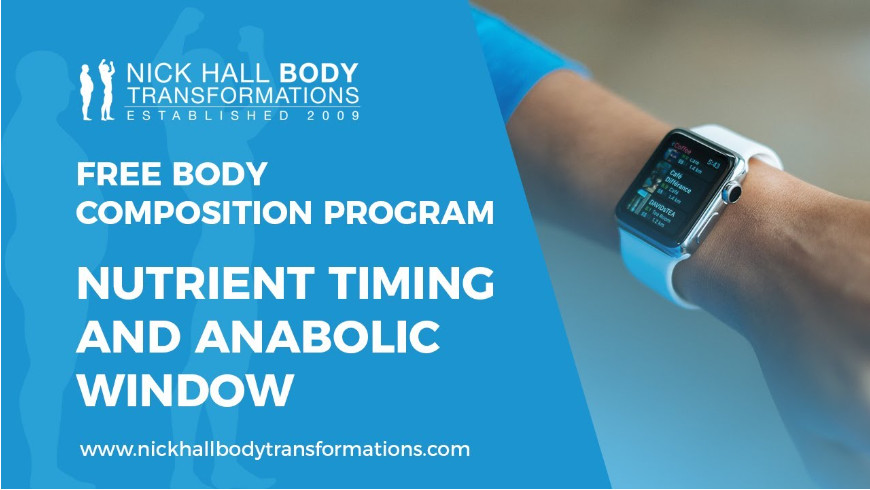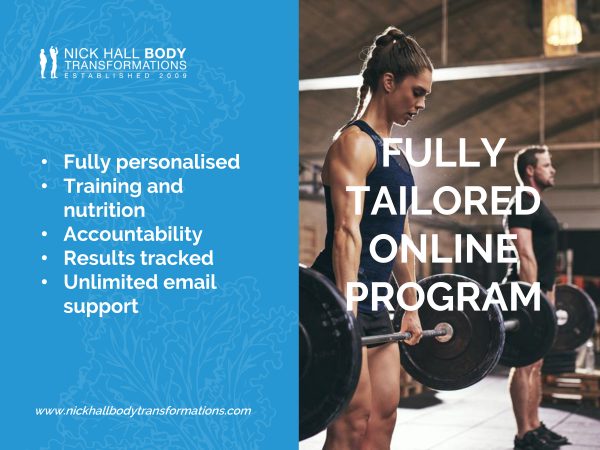we delivers enough to blog about

Nutrient timing and the anabolic window
In today’s blog post we’ll be discussing nutrient timing and the anabolic window.
In brief, nutrient timing is the idea that you should consume protein at regular intervals throughout the day including before and after training with the goal of keeping your amino acid profile high which will aid muscle growth.
Throughout the rest of the day you would only consume protein, fibrous vegetables and healthy fats at regular intervals. These foods were slowly digested and did not elevate blood glucose levels.
This all makes sense so far.
The anabolic window is a brief period of time post workout that you have to ingest protein and carbs to take advantage of higher muscle protein synthesis. This period is quoted as being anywhere from 30 minute to two hours. If you miss out on the getting these nutrients in within the window you potentially can remain catabolic and waste your workout.
As discussed in email 3, some research has shown that carbs can be more beneficial to be consumed either early in the day or later in the day.
Now there is merit to everything that I have mentioned above. However the following context should be considered.
A brief review of critical processes in exercise-induced muscular hypertrophy found that muscle protein synthesis when combined with exercise and protein intake can last for up to 48 hours and is enhanced during this time when protein is consumed.
As discussed in a peer review of pre- versus post-exercise protein intake found that the interval for protein intake may be as wide as several hours or perhaps more after a training bout depending on when the pre-workout meal was consumed. The anabolic window could be roughly a 4-6 hour window around training including when pre and post workout meals were consumed.
In a meta-analysis of the effect of protein timing on muscle strength and hypertrophy the authors concluded that small to moderate effect was
seen for protein timing on lean mass gains. Many of the hypertrophic gains could be explained by differences in total daily protein intake. Subjects in the post-workout groups were eating more protein in total for the day. Consuming adequate protein in combination with resistance exercise is the key factor for maximizing muscle protein growth and recovery.
Regarding the timing of carbohydrate consumption, as noted in the Israeli police study, two groups were given 1300-1500 calorie per day diets. The subjects had a BMI of 30 which would put them into the obese range. Macro distribution was the same with 45-50% of calories from carbs. The group was given carbs mostly at dinner, the other group spread out through the rest of the day. The group who ate mostly carbs at night showed greater weight loss, waist circumference loss and fat mass loss. Other blood markers were also better in the carbs at night group. Both groups however lost weight over the course of the study which was 6 months. As above the difference between the groups wasn’t huge which goes to show the time of day you consume carbs doesn’t really matter.
In summary, my personal preference is to consume a protein supplement post training and a protein and carb meal soon after training. I’m however not as obsessive about the timing that I once was. I also feel more satiated when consuming protein and carbs with each meal including breakfast and dinner. Again this is a personal preference. There is no right or wrong answer.
For clients wanting to lose body fat I definitely recommend consuming protein and fibrous vegetables with each meal as both are more filling and more thermogenic.
Our next blog post will be on why you don’t need to follow a diet which you can view here
References
Israeli police study – carbs consumed at night
https://www.ncbi.nlm.nih.gov/pubmed/21475137
Mixed muscle protein synthesis and breakdown after resistance exercise in humans
https://www.ncbi.nlm.nih.gov/pubmed/9252485
A brief review of critical processes in exercise-induced muscular hypertrophy
https://www.ncbi.nlm.nih.gov/pmc/articles/PMC4008813/
Pre- versus post-exercise protein intake has similar effects on muscle adaptations
https://peerj.com/articles/2825/
Effect of protein timing on muscle strength and hypertrophy. Meta-analysis.
https://www.ncbi.nlm.nih.gov/pmc/articles/PMC3879660/
Comments are closed.
